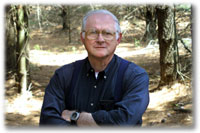Wisconsin is in the midst of its annual cranberry harvest. It reminds me of October, 1955 when my brother, Donald and neighbor boys, David and Jim Kolka and I experienced cranberry harvesting firsthand.
I was waiting to go into the army(not until January); my brother Donald was waiting to attend barber college, and I don’t recall what was up with the Kolka boys. We’d heard they were hiring workers at a cranberry marsh near Wisconsin Rapids—the pay was good ($1.00 an hour),and the four of us enjoyed working outside. Besides, this was something we hadn’t done before.
The cranberry industry at that time was just beginning to shift from hand harvesting (which is what we did) to mechanical harvesting (which is done now). For hand harvesting, we each received a rake, which is a little wooden box with an open end with tines on it and two bow handles, and a pair of hip boots.
The cranberry bog was flooded so that the ripe, red cranberries floated and thus could be more easily gathered with our rakes. The water was knee deep, sometimes a little more, and on chilly October mornings was cold, cold, cold.
In addition to the rake and the hip boots, we each pulled behind us a wooden box tied to our belts with a short rope. When our rake was full we dumped the cranberries in the box. And when the bushel box was full, we carried it to high ground that surrounded each bog. But before we got to the high ground we carefully navigated a narrow wooden plank placed across a water filled ditch. One misstep and we were in water up to our arm pits.
One inaccurate swing with the rake, and a tine would puncture a hip boot and we’d have a wet foot all day. My hip boots had patches upon patches by the end of the season.
We worked in a long line, about eight or ten of us, with the person on the far right setting the pace—we had to keep up with that person, and often times, when our arms felt like they’d come out of our sockets, we considered drowning the guy.
Of all the many jobs I’d had, from working in a pea cannery, picking cucumbers, traveling with a threshing crew, working in a pickle factory, and doing all sorts of farm work, this proved one of the most difficult—and physically challenging. Of course quitting was never an option, so we all four toughed it out until the season ended. Army life proved a breeze compared to harvesting cranberries.
CHECK THIS OUT: See my book, CRANBERRY RED (University of Wisconsin Press, 2010) and learn all about the cranberry industry in Wisconsin, and much more.
THE OLD TIMER SAYS: We often learn more from miserable experiences than those more pleasurable.
October 15, Wade House, Green Bush, WI. 1:00 p.m. Horse Drawn Days.
October 18, New Holstein Library, 1:00 p.m. Book talk featuring Cranberry Red (free). 6:30-8:30 Writer’s workshop. Workshop fee $10.00. Call 920-898-5165 for signup information.
October 22, Toll/Londowski Family Farm, one mile west of Hwy 49/Co. Rd. J. Intersection, Green Lake, WI; “From the Land,” (A gathering of traditional crafts and skills with demonstrations) 11:00 a.m. Horse Drawn Days. 1:00 p.m. Lighter Side of Country Living.
October 23, Madison, WI. Wisconsin Book Festival. 4:00 p.m. to 5:30 p.m. Campfires and Loon Calls.
October 27, Richfield Town Hall, Richfield, WI. 7:00 p.m. Horses and barns.
October 29, The Clearing. Writing From Your Life Workshop, 9:00 a.m. to 4:00 p.m.
Friday, October 07, 2011
Subscribe to:
Post Comments (Atom)

No comments:
Post a Comment